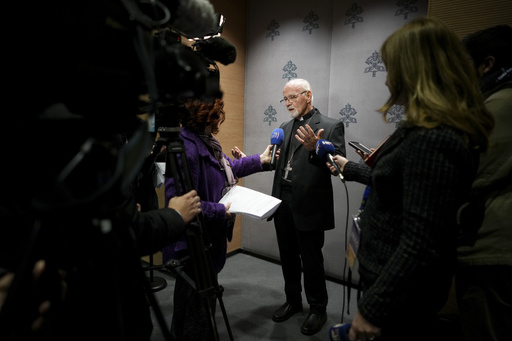In a significant ecclesiastical event, Pope Francis is appointing 21 new cardinals, many of whom play vital roles in his ongoing reform initiatives. Among these are a Dominican preacher who served as the spiritual guide for the recent assembly of bishops, a “street priest” from Naples who shares Francis’ pastoral approach, and a Peruvian bishop noted for his staunch support in combating abuse within the church.
With this being his 10th consistory, it is the largest gathering of new voting-age cardinals during his 11-year papacy. After these appointments, Pope Francis will have elected 110 of the 140 cardinals aged under 80, who are eligible to participate in the conclave to choose his successor. This latest consistory also pushes the number of voting-age cardinals beyond the 120 limit established by St. John Paul II, although 13 cardinals are set to turn 80 next year, which will bring the total down again.
Notably, the 21 new cardinals differ from the individuals initially named on October 6 for the upcoming December consistory. One of the original selections, Paskalis Bruno Syukur from Indonesia, declined the cardinalate to focus on his life as a priest. The pope responded by selecting Domenico Battaglia, the archbishop of Naples, known for his community outreach in challenging areas.
Italy sees a significant number of new cardinals, with Battaglia being one of five Italians receiving this honor, a reflection of Italy’s enduring presence in the College of Cardinals. Turin’s archbishop, Roberto Repole, and Rome’s Baldassare Reina, who was also promoted to be the pope’s main administrator in Rome, are among those elevated. The Vatican’s diocese and its pontifical universities are undergoing a significant restructuring led by Francis, and Reina’s role will be critical in implementing these reforms.
Angelo Acerbi, a 99-year-old retired diplomat, becomes the oldest of the new cardinals and is the only one ineligible to vote due to age. In contrast, the youngest is Mykola Bychok of the Ukrainian Greek Catholic Church in Melbourne, who is 44 years old. Notably, Fabio Baggio, a Vatican official who doesn’t typically hold the cardinal title, has also been honored, along with George Jacob Koovakad, the priest responsible for arranging the pope’s international trips.
Several newly appointed cardinals have been vocal about their roles in Francis’ reformations. Carlos Gustavo Castillo Mattasoglio, the archbishop of Lima, Peru, generated buzz recently with a powerful op-ed calling for the dismantling of the Sodalitium Christianae Vitae, a prominent Peruvian Catholic movement with connections in the U.S. He described it as a “failed experiment,” raising concerns about its underlying political motives tied to a resurgence of authoritarian ideology in Latin America.
This latest consistory has resulted in five new cardinals hailing from Latin America, further emphasizing Francis’ commitment to representing the church’s diverse global community. The new Latin American cardinals represent nations across the continent, while Asia and Africa also each gain two new representatives. Notable mentions include Tarcisio Isao Kikuchi from Tokyo and Ignace Bessi Dogbo from Abidjan, Ivory Coast.
The pope has also appointed several cardinals from various regions, including the archbishop of Tehran and the bishop of Belgrade, with Frank Leo being the only cardinal from North America. Rolandas Makrickas from Lithuania, given his role as archpriest of St. Mary Major basilica, holds a special significance as he welcomes Pope Francis back from foreign visits.
An interesting personality among the new cardinals is British Dominican Timothy Radcliffe, who played a central role during the recent synod. His contributions aimed to enhance inclusivity within the church, focusing particularly on women’s issues. Radcliffe offered insights throughout the synod, evoking lively discussions and emphasizing the importance of taking gradual steps toward reform.


